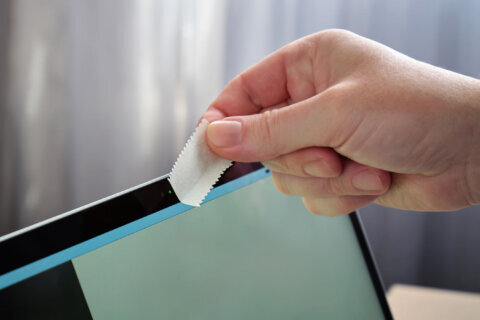When it comes to your smartphone, your “checking” behaviors may be killing your productivity. It may seem quick and innocent enough, but the sneak peeks you keep giving to your email, apps and Facebook feed have been proven by researchers to be costly if you care about getting things done.
The constant interruption to your work of picking up your phone to check for new messages can, like other workplace distractions, cost you up to six hours a day. This is because task-switching may feel easy to do, but it can take close to 25 minutes to resume where you left off.
[See: 10 Ways Social Media Can Help You Land a Job.]
Changing these habits is easier said than done though, since we’ve become a population of addictive phone checkers. A recent study by Asurion found that Americans look at their smartphones 80 times each day on average, or every 12 minutes. Some are even more dependent on their devices, with one in 10 people admitting difficulty going longer than four minutes without checking their phone. Another study found that younger users put even these numbers to shame, with millennials checking their devices 150 times a day.
If you’re nodding your head in recognition, then it’s time to learn strategies to break your smartphone habits to improve your focus. Whether your guilty pleasure is frequently glancing at texts, tweets, email or social alerts, this repetitive behavior can quickly morph into a near obsession, destroying your chances at optimum productivity toward your more important career goals.
The challenge is that our devices have become critical connectors in our lives, helping us feel in the loop with everyone in our sphere, from colleagues and clients to friends and family. But since you have limited time to get your actual job done, it’s necessary to limit your checking urge if you want to have something more to your professional credit than being able to say you read each new message or status update the second it comes in.
It’s going to be painful, but you can do it. Try these tips to self-impose some boundaries on how often you reach for that dopamine hit that you get every time you look at your smartphone:
Only check at predetermined times. The reason that it’s so tough to have self-discipline around your smartphone is related to biology. Psychology Today reports that when your brain anticipates a reward (such as a new message), the brain is more active than when it’s actually receiving said reward. The unpredictability of not knowing when you will receive a new text or alert and what it will say also helps keep you hooked on refreshing that inbox just to be sure that you’re not missing something exciting.
[See: Don’t Be That Guy (or Gal): 8 Networking Turn-Offs.]
Knowing that your compulsive urge is hardwired into your brain just like everyone else’s, it helps to set up some boundaries around your ability to easily cave in to those Pavlovian desires. To avoid being completely hijacked by outside influences and have some chance of letting your own goals and priorities steer your focus and attention, designate in advance specific times that you’ll allow yourself to check your smartphone. You can pre-empt the worry that others will panic if you don’t respond instantly to their missives by proactively telling your team and boss about your schedule, letting people know how to reach you in case of emergency.
Keep yourself from checking when it’s not scheduled. Even with the best intentions, your plans for device-checking will fly out the window if you don’t make it very difficult for yourself to steal a glance at your phone every time the urge strikes. So do what it takes to rein yourself in during the blocks of time when you hadn’t planned to check it.
That might mean stowing your phone away unseen — with alerts turned off — in another room or desk drawer, or logging out of your email or social media accounts during the times that you’ve designated for focused work. The only time you want to let yourself see your device is at the regularly scheduled hours you’ve determined in advance as your checking times.
[See: Tips for Surviving a Career Transition.]
Don’t check messages on the weekend. The weekends present a natural opportunity for you to take a break from your device, since you may be spending face time with family or friends that you’d be texting from the office during the workweek. When it comes to responding to messages from your boss or colleagues, it’s worth trying to have a candid discussion with your team about the problems that staying constantly “on” can cause, and see if you can get buy-in for device-free time over the weekend. Be sure to explain the benefits of doing so as well — that taking a true breather and digitally detoxing for a few days can help people start each week rested and ready, with more energy and enthusiasm for the job.
If you reach agreement with your work group to collectively shut down devices, though, be careful not to just waste your chance for true digital respite by then spending too much time scrolling through social media or surfing the internet. If you feel you simply can’t live without the phone-checking behavior on your days out of the office, try limiting it to a short time slot — perhaps a half-hour each day — rather than letting it bleed into the entire weekend.
More from U.S. News
10 Tech Jobs That Make the Most Money
The 8 Stages of a Winning Job Search
Always Checking Your Smartphone at Work? Here’s How to Break the Habit originally appeared on usnews.com







